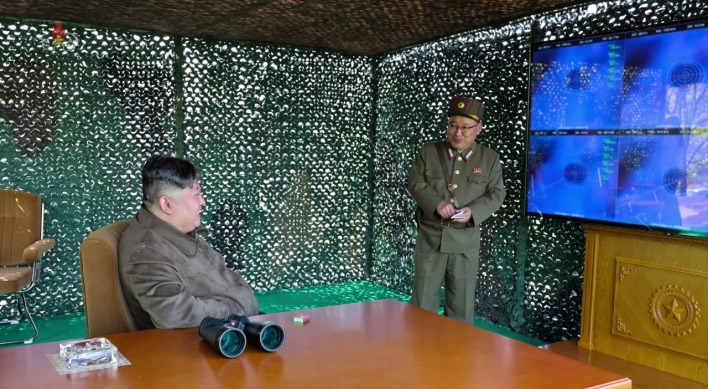NK failed to detect US warplanes off east coast: NIS
Tension between Pyongyang and Washington escalates after US Air Force’s saber rattling near inter-Korean border
By Choi He-sukPublished : Sept. 26, 2017 - 16:01
North Korea appears to have failed to detect a flight by US bombers near its airspace on Saturday, undermining the feasibility of Pyongyang’s latest threats against the US, lawmakers said Tuesday.
On Monday, North Korean Foreign Minister Ri Yong-ho claimed that the US has declared war on his country, and that US military planes will be shot down should they approach North Korea airspace.
On Monday, North Korean Foreign Minister Ri Yong-ho claimed that the US has declared war on his country, and that US military planes will be shot down should they approach North Korea airspace.
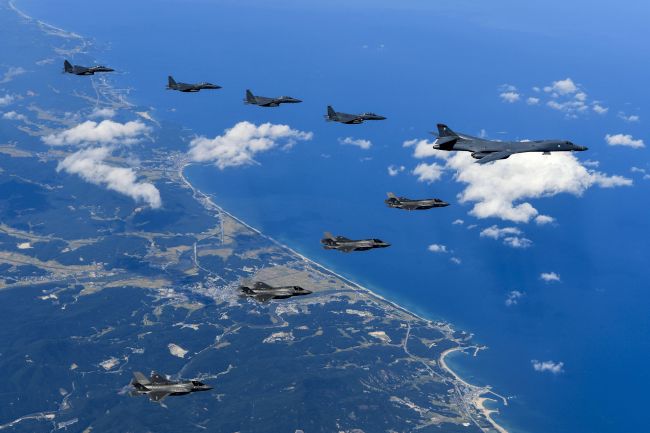
According to members of South Korean parliamentary intelligence committee, however, North Korea may be incapable of detecting US Air Force maneuvers near its borders.
Lawmakers on the committee told the media that Seoul’s National Intelligence Service reported that Pyongyang appears to have been unaware of Saturday’s operation involving B-1B bomber and F-15 fighter jets. The NIS also told the lawmakers that North Korean military took no measures in response around the time of the flight.
“In short, North Korea took no actions when the B-1B (bombers) approached (North Korea),” intelligence committee chief Rep. Lee Cheol-woo said, citing information revealed by the NIS.
Lee added that the US military informed the NIS that the flightpath of the B-1B was disclosed because North Korea appeared to have failed to detect the maneuver on its own, and appears to have conferred with China and Russia regarding the matter.
According to the NIS, North Korea repositioned some military aircraft to the east coast, and carried out a surveillance flight in the region sometime after the US aircraft withdrew from the area.
The revelation comes a day after Ri accused US President Donald Trump of declaring war on North Korea, giving his country “the right to shoot down US bombers even if they do not breach our airspace.”
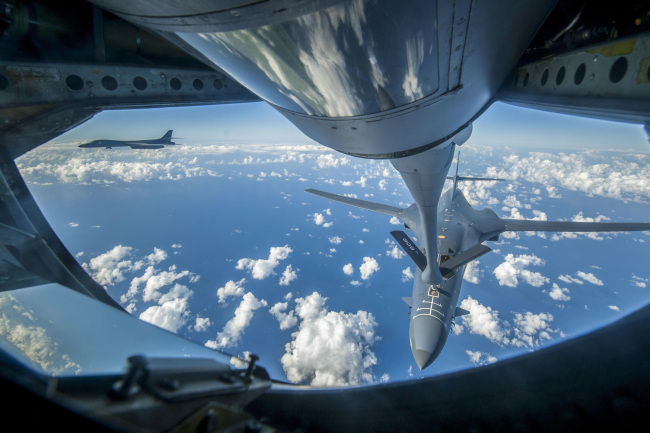
Ri claimed that it was a clear declaration of war, and that his country now has the justification to shoot down US military planes even if North Korea’s airspace is not breached.
“This past weekend, Trump again declared war on us, saying that our regime will not last long,” Ri said, saying that the international community had hoped for the war of words between Washington and Pyongyang to escalate into actions.
“These words were uttered by the incumbent president of the US, therefore it is a clear declaration of war. The world must remember clearly that it was the US that first declared war on us.”
Ri was referring to Trump’s tweet on Sunday that reads “Just heard Foreign Minister of North Korea speak at UN. If he echoes thoughts of Little Rocket Man, they won’t be around much longer,” again calling Kim Jong-un “Rocket Man.”
The White House has been quick to dismiss Ri’s claims.
“We have not declared war on North Korea and frankly the suggestion of that is absurd” White House press secretary Sarah Huckabee Sanders said.
South Korea, meanwhile, continues to seek means to ease tension between Washington and Pyongyang.
“It is imperative that we, Korea and the US together, manage the situation, in order to prevent further escalation of tensions or any kind of accidental military clashes which can quickly go out of control,” South Korean Foreign Minister Kang Kyung-wha said in a speech in Washington, while warning that Pyongyang was likely to carry out more provocations.
According to Seoul’s parliamentary intelligence committee, South Korean military and intelligence agencies are closely monitoring the North over concerns that another provocation may occur in October.
“This past weekend, Trump again declared war on us, saying that our regime will not last long,” Ri said, saying that the international community had hoped for the war of words between Washington and Pyongyang to escalate into actions.
“These words were uttered by the incumbent president of the US, therefore it is a clear declaration of war. The world must remember clearly that it was the US that first declared war on us.”
Ri was referring to Trump’s tweet on Sunday that reads “Just heard Foreign Minister of North Korea speak at UN. If he echoes thoughts of Little Rocket Man, they won’t be around much longer,” again calling Kim Jong-un “Rocket Man.”
The White House has been quick to dismiss Ri’s claims.
“We have not declared war on North Korea and frankly the suggestion of that is absurd” White House press secretary Sarah Huckabee Sanders said.
South Korea, meanwhile, continues to seek means to ease tension between Washington and Pyongyang.
“It is imperative that we, Korea and the US together, manage the situation, in order to prevent further escalation of tensions or any kind of accidental military clashes which can quickly go out of control,” South Korean Foreign Minister Kang Kyung-wha said in a speech in Washington, while warning that Pyongyang was likely to carry out more provocations.
According to Seoul’s parliamentary intelligence committee, South Korean military and intelligence agencies are closely monitoring the North over concerns that another provocation may occur in October.
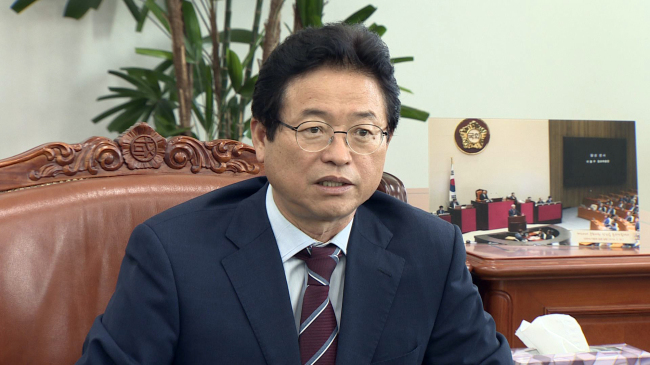
By Choi He-suk (cheesuk@heraldcorp.com)



![[AtoZ into Korean mind] Humor in Korea: Navigating the line between what's funny and not](http://res.heraldm.com/phpwas/restmb_idxmake.php?idx=644&simg=/content/image/2024/04/22/20240422050642_0.jpg&u=)



![[Herald Interview] Why Toss invited hackers to penetrate its system](http://res.heraldm.com/phpwas/restmb_idxmake.php?idx=644&simg=/content/image/2024/04/22/20240422050569_0.jpg&u=20240422150649)

![[Graphic News] 77% of young Koreans still financially dependent](http://res.heraldm.com/phpwas/restmb_idxmake.php?idx=644&simg=/content/image/2024/04/22/20240422050762_0.gif&u=)





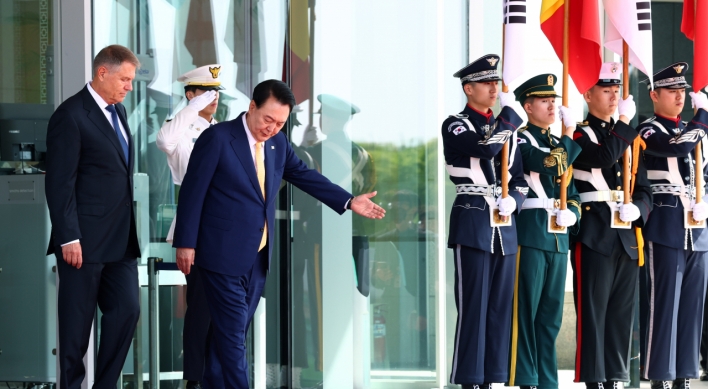
![[Exclusive] Korean military to ban iPhones over security issues](http://res.heraldm.com/phpwas/restmb_idxmake.php?idx=652&simg=/content/image/2024/04/23/20240423050599_0.jpg&u=)
